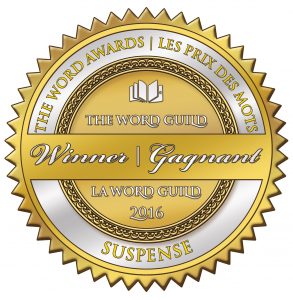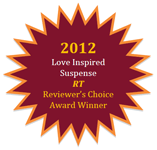In commemoration of Remembrance Day, I’ve invited the heroine from Catherine West’s novel, Yesterday’s Tomorrow, to answer a few questions. But first let me tell you a bit about this 60s era romance that readers are raving about.
Vietnam, 1967.
Independent, career-driven journalist Kristin Taylor wants two things: to honor her father’s memory by becoming an award-winning overseas correspondent and to keep tabs on her only brother, Teddy, who signed up for the war against their mother’s wishes. Brilliant photographer Luke Maddox, silent and brooding, exudes mystery. Kristin is convinced he’s hiding something.
Willing to risk it all for what they believe in, Kristin and Luke engage in their own tumultuous battle until, in an unexpected twist, they’re forced to work together. Ambushed by love, they must decide whether or not to set aside their own private agendas for the hope of tomorrow that has captured their hearts.
Hi Kristen, so glad you could join us. Could you start by telling us a little about yourself?
Thanks for having me! I’m Kristin Taylor, daughter of Malcolm and Valerie, sister to Teddy. From Boston, Mass. I was 24 when I decided to go to Vietnam. I’m a journalist. Always wanted to be one really, from the time I was very small. My father was one of the greatest wartime correspondents ever. He influenced this career choice in a major way. Actually I can’t even call it a choice. It’s what I was meant to be. Going to Vietnam seemed to be a calling rather than a career move. I have a younger brother Teddy, and after he enlisted, I knew I wasn’t going to be happy back in Boston waiting for that letter or phone call… I needed to be where the action was. To follow in my father’s footsteps and make a name for myself, even despite my mother’s opposition.
How did your father die?
My father died in 1957, in Vietnam. He was there on assignment. He was in the wrong place at the wrong time. I was twelve years old and I suppose my mother spared me the gory details. She said he died bravely, doing what he loved. Which was true. I found out later that he’d been following a platoon that walked right into an ambush. None of them stood a chance.
Weren’t you afraid to go to a war-torn country?
I’m not sure I gave myself time to be afraid. I think if I’d really sat down and thought about it, thought about what I was going to see, hear, feel, I’m not sure…I probably would have gone anyway. I don’t give in to fear easily.
What’s life like on the field as a foreign correspondent?
In a word, hell. You can’t imagine the things you see. The death. Destruction. You’re literally on your own the minute you step off the plane out there. Unless you’re lucky enough to be working with an established paper already, you need to find work. Get a visa. And then go where the stories are. And that’s out in the field. Most of the time I was able to get rides on Huey’s (helicopters), follow a platoon, get onto base camps, but some of the guys didn’t like having a girl around, know what I mean? They sort of felt responsible, like if something happened to me it was their fault. I had to earn their trust and respect. You don’t get much sleep. The food is awful. It’s hot and damp and sticky and exhausting. And some nights you don’t dare close your eyes because you’re not sure you’ll wake up in the morning. At the same time, it’s a rush. You’re always on, ready to run after the next story. You don’t want to miss a thing.
How did you meet Luke Maddox?
Meet? Ha. I would use that term rather loosely. Actually I fell asleep in his apartment by accident, and he pulled a gun on me. It was a rather memorable introduction. His sister and I ended up as roommates, and he lived in the same building, right next door, so he had to put up with me, like it or not, and I had to put up with him.
What attracts you to him? drives you crazy?
Oh dear. Laughing. When we first met I couldn’t wait to get away from him. He was probably the biggest jerk I’d ever met. And he wasn’t about to give me the time of day. But somehow we kept landing in the same places and…I realized there was a lot more going on behind those eyes than he wanted me to know. So of course I made it my business to find out. J Aside from the fact that he’s not that hard to look at once he’s cleaned up, I found him to be extremely intelligent.
That was a shocker.
But apart from my father, I think he’s one of the smartest men I’ve ever met. He’s brave, loyal and honest. But he’s stubborn and when you get on his bad side, you don’t want to be in the same room, trust me. The thing that really drives me nuts though, is that he knows me. Seriously sees right through me. I didn’t think anyone would be capable of getting past the shallow relationship stuff, you know? But Luke…he just strode right on through, grabbed my heart and laid claim to it like it was always his for the taking.
Did you ever run into your brother on the field? How did you find out where he was?
At first I couldn’t get a lead on Teddy. I knew my mother was worried sick of course, and I just tried not to think about what he’d be going through. Whenever I went to a new base camp I’d ask questions, try to find out where he was. It was actually Luke that found him. I learned later that his connections out there were a lot better than mine. It was probably one of my best days in Vietnam, seeing Teddy. Seeing that he was all right. It was a good day.
Why do they call your brother “Preacher”?
Yeah, that’s Teddy all right. He’s always had a strong faith. He seemed to have this relationship with God…I didn’t understand it. Not for a long time. But he’s…passionate I suppose…really excited about who God is and he just wants to share that with everyone. He got the name “Preacher” from the other GIs over there because wherever he went he’d somehow end up talking to them about God. But it was good. The guys listened for the most part. I’m sure some thought he was crazy, but I know he helped a lot of them get through their tours by pointing them toward a hope they didn’t know existed.
What did you want your readers to learn from the news reports you wrote?
I wanted them to learn the truth. There was so much confusion over there, so many conflicting stories. It was difficult not to take sides. I just wanted to show them back home what it was really like for those boys, for the men and women who served in Vietnam. I felt like we were fighting a forgotten war. While guys were getting killed in the jungles, everybody back in the States was just going about their normal everyday lives, like none of it mattered anymore. I wanted it to matter. I wanted them to know. To see. To feel. And to honor what those boys were doing for their country. For them.
Do you felt like you made a difference?
Oh, I don’t know. Does anybody really make a difference in this world? Martin Luther King made a difference. JFK made a difference. But me? I just told the truth. The guys out there, they made the real difference. People just didn’t know it. And now, back home, nobody wants to talk about it.
Did you see evidence of God in such a devastating place?
When I went to Vietnam, I was angry with God. Angry with Him for taking my father, just angry I guess. I definitely didn’t have the kind of faith my brother or even my mom did. I was also a bit of a control freak. There was no way I was about to give my life over to some being I couldn’t see or hear. I wasn’t even sure He existed.
The more atrocities I saw over there, the stronger my doubt grew. I found it very difficult to understand how a loving God could just sit back and do nothing in the face of such death and destruction. Yet I saw God in Vietnam. I saw him in the faces of the children. In the kindness of strangers. In the beauty of the countryside, the color of the ocean. Even in death. God was everywhere in Vietnam, even when I didn’t want Him to be. He was. It’s taken me a while to acknowledge that. I’m still growing, still learning. Still forgiving. But God is patient. He’s not going anywhere.
A lot of people came home with many issues to deal with. They suffered nightmares and found it difficult to assimilate, to function in the life they knew before Vietnam. Did you feel the same?
Oh, sure. Coming home was hard for a number of reasons. I lost so much over there. Luke and I talked a lot about what it would be like afterward. What it would be like to be home, to live a normal life. In the end you just kind of laugh and shake your head because really, what’s normal after Vietnam? But you go on. You push through the pain, you try to forget the nightmares and you put one foot in front of the other. You live. And that’s the point really. You live because you can.
Do you regret your time there?
No, not at all. I regret the choices I made. Some of the things I did and didn’t do, but I’ll never regret going to Vietnam. I met too many wonderful people. Made friends. Fell in love. If I hadn’t gone to Vietnam, I don’t think I’d be the person I am today. And while I’m not perfect by any stretch of the imagination, I think I’m someone my father would be proud of. Vietnam taught me so much, much of which I was totally unprepared for, but I think I learned a lot. I learned about love, friendship, trust and love. But most of all, I learned how to live.

Educated in Bermuda, England and Canada, Catherine West holds a degree in English from the
University of Toronto. When she’s not at the computer working on her next story, you can find her taking her Border Collie for long walks or tending to her roses and orchids. Catherine and her husband live on the beautiful island of Bermuda, with their two college-aged children. Catherine is a member of
Romance Writers of America, and
American Christian Fiction Writers, and is a founding member of
International Christian FictionWriters. Catherine’s debut novel
Yesterday’s Tomorrow, released in March 2011 through
OakTara Publishers. Catherine’s next novel,
Hidden in the Heart, will be available in the near future, also through OakTara.
Your Turn: Do you have any questions for Catherine?
Giveaway: Catherine is giving away a copy of her book today at
her blog. Click here to check it out.


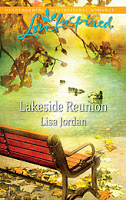


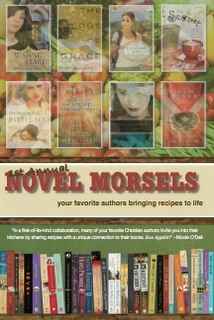








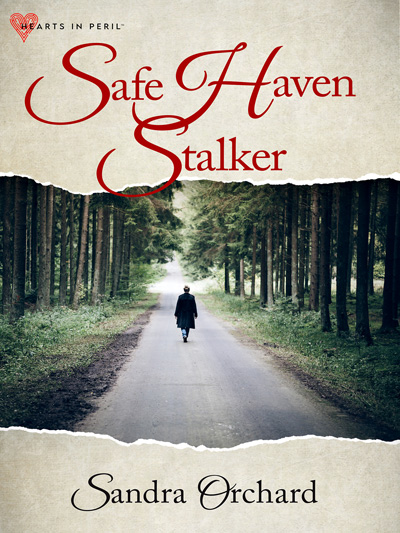
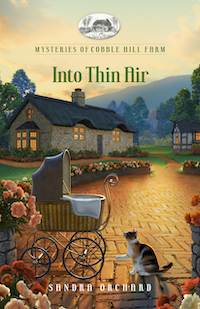
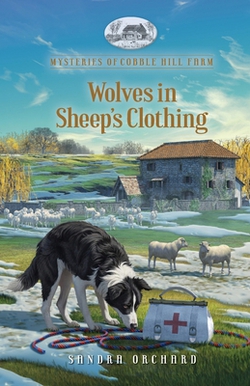
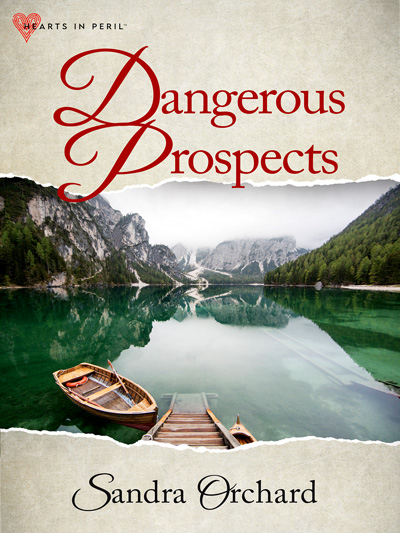
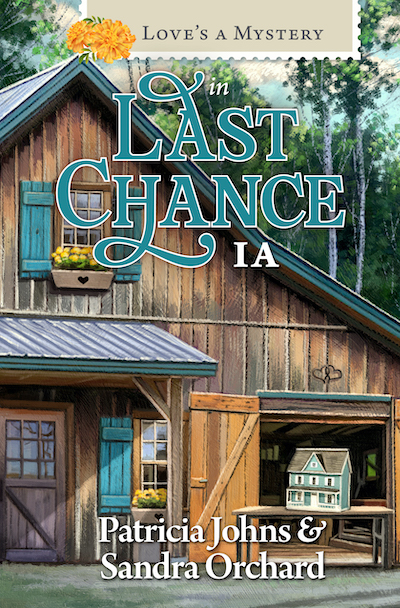

 RSS - Posts
RSS - Posts



